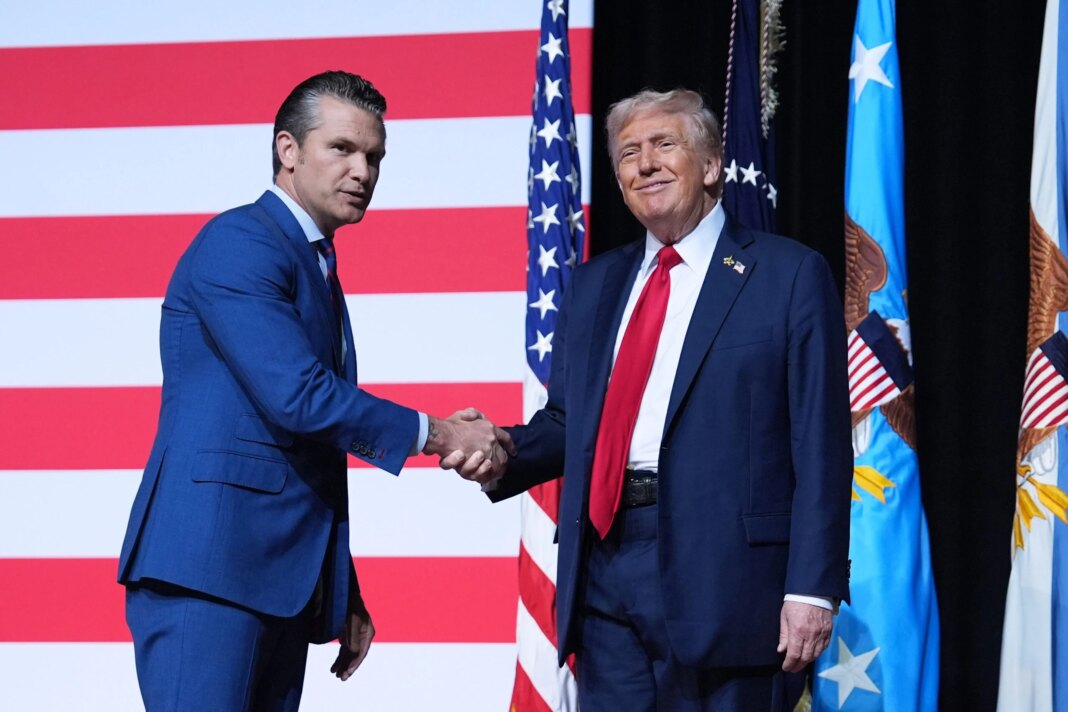Rising Tensions: The U.S. Military Strikes Against Drug Cartels
Background and Justifications
In recent months, a significant escalation in U.S. military action against drug trafficking in Latin America has sparked intense debate among lawmakers and the public alike. President Donald Trump, alongside Defense Secretary Pete Hegseth, asserts that the U.S. military has executed eight strikes resulting in the deaths of 34 individuals involved in drug smuggling. These operations, carried out in the Caribbean Sea and the Pacific Ocean, have been framed by Trump as essential in combating the flow of illicit drugs into the United States.
The legal grounds for these military actions draw parallels to the post-9/11 “war on terror” framework. Trump has categorized the drug cartels as “unlawful combatants,” suggesting that the trafficking of narcotics constitutes an armed conflict requiring military intervention. This rationale has raised questions regarding the extent of presidential power when engaging militarily without the formal consent of Congress.
Congressional Concerns
As these strikes increase, so too does the scrutiny from elected officials. Many members of Congress have voiced their concerns regarding the president’s unilateral decision-making. Critics point out the absence of a formal declaration of war and the lack of transparent legal justification for these military actions. Senator Tim Kaine and a group of Democratic lawmakers underscored the need for legitimate legal rationale, questioning the ethical implications of targeting suspected criminals without due process.
This situation has highlighted a broader debate about the balance of power between the presidency and Congress, particularly regarding military engagements. While Republicans have generally supported the administration’s actions, some, like Senator Rand Paul, have cautioned against overreaching executive authority.
Timeline of Military Actions
- January 20: On his first day back in the White House, Trump signed an executive order that made it possible to designate criminal organizations, including Venezuelan gangs, as “foreign terrorist organizations.”
- February 20: The administration formally classified eight Latin American crime groups as foreign terrorist organizations, a designation typically reserved for politically motivated entities.
- August 19: The deployment of three Aegis guided-missile destroyers to the Caribbean marked an escalation in military readiness against drug trafficking concerns.
- September 2: The first strike was executed against a vessel allegedly transporting drugs from Venezuela, resulting in 11 casualties. Trump shared footage of the vessel exploding but provided little evidence to substantiate claims of drug trafficking.
- Subsequent Strikes: A series of attacks followed, with reports of significant fatalities, and each event further fueled disputes over the justification of such military interventions.
International Reactions
Amid growing disturbances caused by these military operations, international experts have voiced concerns. A United Nations panel criticized the U.S. for its intervention in Venezuelan affairs. They contended that these military strikes lack a proper legal foundation and breach international obligations. The assertion that drug trafficking amounts to a declaration of war raises concerns over the implications for global peace and security.
The Future of Military Engagements
As the U.S. military’s operations continue to expand, lawmakers are increasingly vocal about the implications of these actions. Among calls for transparency and accountability, the potential shift in U.S. foreign policy towards militaristic interventions in narcotics-related issues remains uncertain. Will this lead to a prolonged military engagement, or will lawmakers succeed in imposing constraints on the president’s actions?
On the ground, the increases in naval presence and military operations signal a tightening grip on drug trafficking routes, but the long-term ramifications for U.S. relations with Latin America, particularly Venezuela, are yet to unfold.
Conclusion
The ongoing military strikes against drug cartels mark a significant shift in U.S. military policy. Framed within the context of a broader “armed conflict,” the actions have drawn both support and criticism, highlighting the complexities of executive authority in military engagements. As the situation evolves and legislators respond, the future of U.S. military involvement in the region hangs in the balance.



